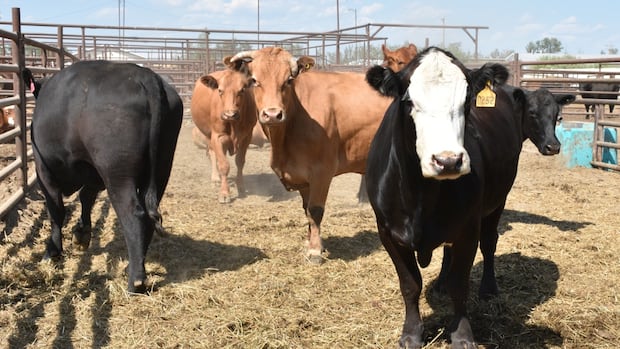
Australia has officially lifted its 22-year-old ban on the import of Canadian beef and beef products, the Canadian Food Inspection Agency announced on Tuesday. This decision marks a significant relief for Canadian farmers, although it is not expected to lead to a surge in new sales.
The ban was initially imposed in 2003 after Canada’s first domestic case of bovine spongiform encephalopathy (BSE), commonly known as mad cow disease, was discovered in Alberta. The move to lift the ban comes shortly after Australia ended a similar restriction on U.S. beef imports last week.
Canada Celebrates Market Reopening
The Canadian government has welcomed the resumption of access to the Australian market. Federal Agriculture Minister Heath MacDonald expressed optimism about the opportunities this development could unlock for Canadian producers.
“With restored access to Australia, a key market in the Indo-Pacific, we can unlock more opportunities for our producers to deliver the top-quality beef we’re known for,” MacDonald stated.
The Canadian Cattle Association, representing farmers and feedlots, also celebrated the reopening, noting that Australia was one of the last countries to maintain mad cow disease restrictions on Canadian beef.
Economic Impact and Industry Reactions
Despite the positive sentiment, analysts remain skeptical about the potential volume of North American beef exports to Australia. Resilient Capital analyst Jerry Klassen highlighted the competitive pricing dynamics at play.
“U.S. beef is still very highly priced compared to Australian beef,” Klassen noted. “North American beef is really the highest-priced in the world.”
Canadian cattle ranchers have long felt the impact of the 2003 restrictions, as a significant portion of the country’s beef production is destined for export, particularly to the United States. The reopening of the Australian market is seen as a symbolic victory for the industry.
Ranchers’ Optimism
Beef producers across Canada are celebrating the decision, even those like cattle rancher Charlie Christie, who doesn’t plan to directly export to Australia.
“Any time you take more beef in a market, you’re affecting everybody. So it’ll raise all boats, so to speak,” Christie explained. “When you’re taking beef out of the supply chain and sending it elsewhere, that opens up opportunity for all other types of production as well.”
Christie added that such positive developments provide optimism for the future of his business.
Looking Forward
While the reopening of the Australian market may not drastically alter the landscape for Canada’s beef industry, Canadian Cattle Association general manager Ryder Lee views it as a promising sign.
“It’s not a big mover of the marketplace, I don’t see. But [it’s] a good sign, a trading nation following science and rules-based trade,” Lee commented. “That’s who we try to be, and I’m glad to add this to the list of opportunities for export.”
The announcement comes as global trade dynamics continue to evolve, with countries reassessing trade relationships in light of scientific advancements and economic needs. As Canada looks to expand its market presence, the reopening of the Australian market represents a step towards broader international engagement.
Moving forward, Canadian beef producers will likely continue to explore new markets and opportunities, leveraging the high quality of their products to compete on the global stage.






